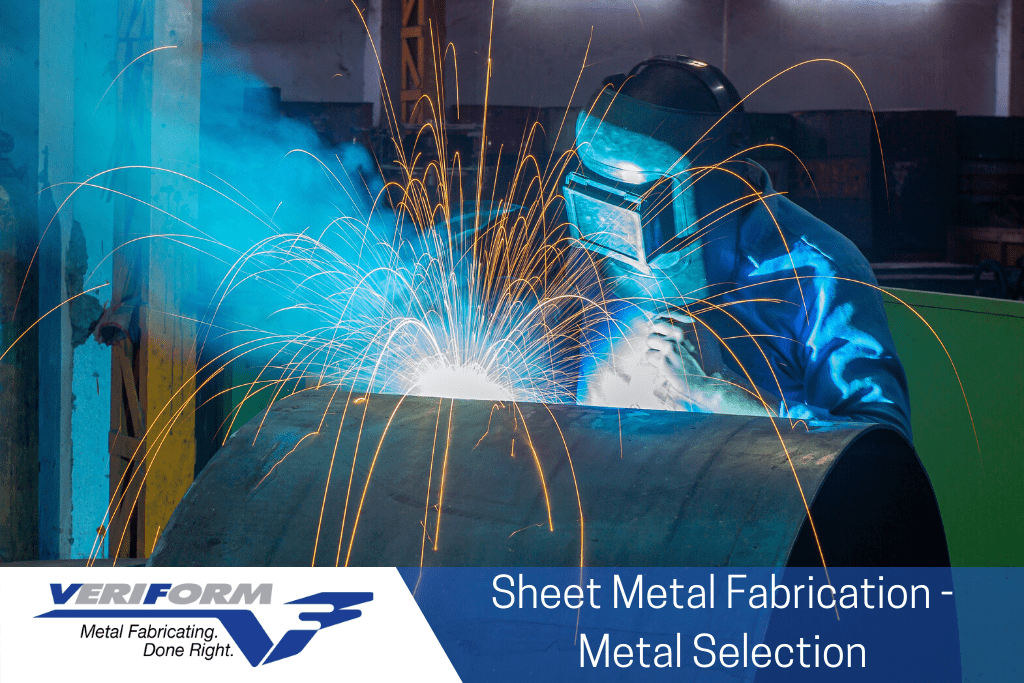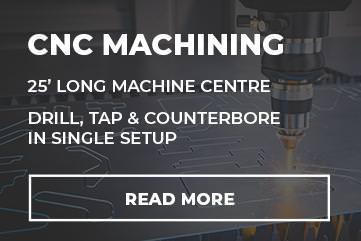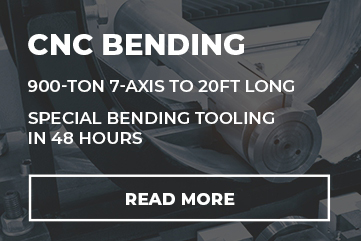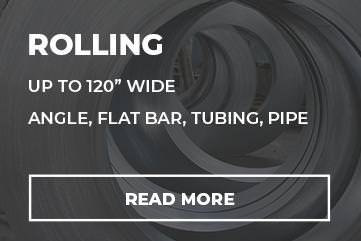News
Sheet Metal Fabrication - Metal Selection

Sheet metal fabrication is a complicated process that produces significant results. Nonetheless, we see improvements in the technology, the practice, and the science showing no signs of stopping. Today, we consider sheet metal as one of the most essential building materials, especially for the manufacturing industry as well as many other industries. Typically, sheet metal is fabricated from aluminum, nickel, tin, steel, brass, titanium, and even copper. But how important is the metal you choose in sheet metal fabrication? Let’s talk about all of that below.
What is Sheet Metal Fabrication
To simply state, sheet metal fabrication is the process that transforms flat sheets of metal (usually aluminum or steel) into different products or structures such as pipelines, or building parts. The sheet is changed either by punching, cutting, assembling, and/or folding it. Sheet metal might also be bent, cut, or stretched to any shape by burning or cutting the metal. The sheet metal fabrication process employs several tools from saws, cutting torches, and press brakes. These tools are used to transform the sheet metal into whatever form it will take on next. The company VeriForm has an excellent set of tools for sheet metal fabrication, and you can check out their processes along with past projects here.
The Importance of Metal Selection in Sheet Metal Fabrication
The type of metal you use for sheet metal work is significant as it can affect how well it will serve its purpose. That is why picking the type of metal to be used is the first step in any manufacturing process. But why?
There are a few factors that can affect the type of metal a manufacturer will use for production. These can include:
- Price
- Mechanical attributes
- Environmental considerations
- Physical properties
- Chemical properties
These factors will make it easy for the manufacturer to pick a suitable metal for the job. Different metals react differently when worked on or manipulated, so the choice should be deeply considered. If the manufacturer chooses the wrong metal, the product will fail at the manufacturing phase. This is because the material they choose should retain its physical properties and maintain its strength during the whole process. It will also play a part in how long the structure can stand wear and tear. However, if suitable materials are chosen, you will get a product with a competitive edge thanks to its endurance, quality, mechanical properties, and performance.
Different Metals You Can Use for Metal Fabrication
Stainless Steel
Stainless steel is a common term to refer to any variety of sheet metal that contains at least 10.5% chromium. However, there are different grades available with other properties. The most common are the ones that are corrosion resistant. Regular, ordinary stainless steel does not need heat to be processed.
Pros
- Chromium additive gives it a corrosion-resistant finish.
- Solid and durable for everyday use.
- Available in a variety of hardness levels, thicknesses, and widths.
- Recyclable.
- Easily machinable.
- Weldable and can be used for riveting or soldering processes.
Cons
- Thick welding points may create corrosion points.
- Easily chips.
- More costly compared to other options.
- Requires a lot of polishing and finishing to be presentable.
Spring Steel
Spring steel refers to several high-yield strengths of steel. This includes low-alloy manganese high and medium- carbon steel. Notably, spring steel is most often used in creating springs. The material tends to return to its original shape after load-bearing or twisting.
Pros
- High yield strength and does not change shape when compressed or twisted.
- The unique ability to be shaped, formed and post heat treated.
Cons
- Not suitable for welding.
- It might be challenging to work with in a tempered and hardened state.
- Overheating can cause the metal to be brittle.
Aluminum
Aluminum is considered to be a pure metal that can easily be alloyed with other materials. It is not magnetic and is not combustible. It’s also a good conductor of electricity. Aluminum is corrosion resistant and is easy to process. Lastly, it is also non-toxic making it perfect for a variety of applications.
Pros
- The non-toxic property makes it perfect for food exposure.
- Excellent heat conductivity.
- Non-combustible and reflective making it perfect for lighting applications.
- Corrosion-resistant.
Cons
- More expensive than other options
- Not as strong as steel
- It can affect the taste of food at times.
Contact VeriForm
If you are looking for a trusted name in sheet metal fabrication in Ontario, Canada, VeriForm is your best bet. VeriForm has 24 years of experience in the process of fabrication and continues to provide quality service to all customers. The experts at VeriForm can help you determine the best metal selection for your project and more. They will provide you with the best options based on the needs of your project and produce great lasting results. Choosing the right metal can ultimately reduce your costs and expenses as well as ensure your structure lasts. Visit our website to find out how we can help your next metal fabrication project.








